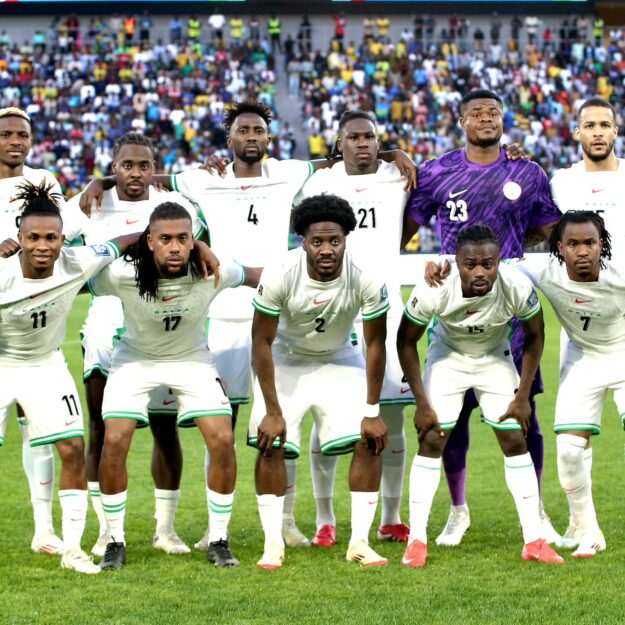•A university’s crisis symbolises a national problem
The news that an astounding 88 per cent of the students of Federal University, Oye-Ekiti (FUOYE), in Ekiti State are yet to pay their school fees for the current academic session is a troubling reminder of the complex nature of university funding in present-day Nigeria.
Fifteen thousand of the university’s 17,000 students have not paid their school fees long after the expiration of statutory deadlines and several reminders from the university management. To further aggravate matters, they apparently took the battle to the school by protesting the inadequacy of facilities, especially roads, functional toilets and wi-fi.
FUOYE’s vice-chancellor, Professor Kayode Soremekun, has lamented the payments crisis, pointing out that it has inhibited the school’s ability to provide the very same facilities whose insufficiency the students are protesting. A two-week mid-semester break has been declared to facilitate the rehabilitation of facilities and to enable the students obtain their fees.
Nigeria’s economic constraints have negatively impacted most areas of national life, not least the country’s universities. In the 2017 national budget, FUOYE got N164 million for capital projects, a paltry 6.7 per cent of the N2.3 billion allocated to it. The University of Ibadan received N99 million for capital projects out of a N13 billion allocation. Ahmadu Bello University, Zaria, got N215 million as capital allocation, 1.5 per cent of the N14 billion it was supposed to get.
An already-bad situation has become even worse in the case of FUOYE. Unusually situated on two campuses in Oye and Ikole, it is expanding almost exponentially, having added three faculties, over 20 departments and launched 60 post-graduate programmes in the last two sessions. Its increased spending requirements thus render it particularly vulnerable to the fiscal shortfalls that are a consequence of its undergraduate students’ failure to pay their fees.
It is a crisis that must be addressed comprehensively if it is to be resolved. The first place to start is by enforcing the rules properly. In most schools, any student who has not paid cannot register; once the statutory registration period has lapsed, the individual concerned is no longer deemed a student and must withdraw.
All universities have clearly-defined payment schedules which provide precise, non-negotiable timelines for the payment of fees. FUOYE’s failure to enforce its own regulations is what has brought it to this embarrassing pass. Instead of adhering to laid-down rules, it chose to temporise, unwittingly offering its students an excuse to shirk their obligations and turn the tables by imperiously making demands of their own.
FUOYE must ensure that the new deadlines for payment are adhered to; any refusal to do so must be dealt with in strict accordance with laid-down regulations. It is significant in this regard that the school fees crisis does not extend to candidates in the university’s Pre-Degree and Joint Universities Preliminary Examinations Board (JUPEB) programmes where the rules are appropriately enforced.
In addition, the university must begin to seriously consider new approaches to independently funding its operations. Unlike most universities, it has not invested in the bakery, sachet water, cement-block making, consultancy and other businesses that other schools utilise in increasing internally-generated revenue.
The university is yet to set up an endowment fund, nor is there any evidence that it has actively engaged prominent citizens of Ekiti State or Nigeria in soliciting their aid in facilitating the development of its infrastructure and facilities. Partnerships with corporate organisations are few and far between. There are no work-study initiatives or other schemes aimed at assisting indigent students, most of whom cannot rely on inadequate or unpaid bursaries and scholarships. Indeed, it is about time some of these initiatives that were available for indigent students in the past were resuscitated. We are talking about revolving scholarship schemes, payment of bursaries, etc. In the same vein, governments at all levels must be ready to collaborate to make the economy work again such that parents can find it easy to pay their children’s school fees.
There is no doubt that university education is an obvious societal benefit, but it is an expensive one. If it is to function as it should, all stakeholders must ensure that they contribute meaningfully to its continued growth.
You may be interested

2026 WCQ: Osimhen’s Goal Not Enough As Zimbabwe Hold Super Eagles In Uyo
Webby - March 25, 2025The Super Eagles of Nigeria were held to a 1-1 draw by Zimbabwe in their 2026 FIFA World Cup qualifying…

Nwaneri Scores On Full Debut For England U-21
Webby - March 24, 2025Ethan Nwaneri scored on his full debut as England Under-21s beat Portugal in an entertaining friendly at The Hawthorns, BBC…

NPFL: ‘Heartland Won’t Give Up Fight For Survival’ –Assistant Coach, Uzor
Webby - March 24, 2025Heartland assistant coach, Charles Uzor, has emphatically stated that the Naze Millionaires will not give up hope of surviving the…






















![American Pastor, David Wilson Seen Eating The Box Of Woman Who Isn’t His Wife [Video]](https://onlinenigeria.com/wp-content/uploads/2019/10/american-pastor-david-wilson-seen-eating-the-box-of-woman-who-isnt-his-wife-video-150x150.jpg)









Leave a Comment